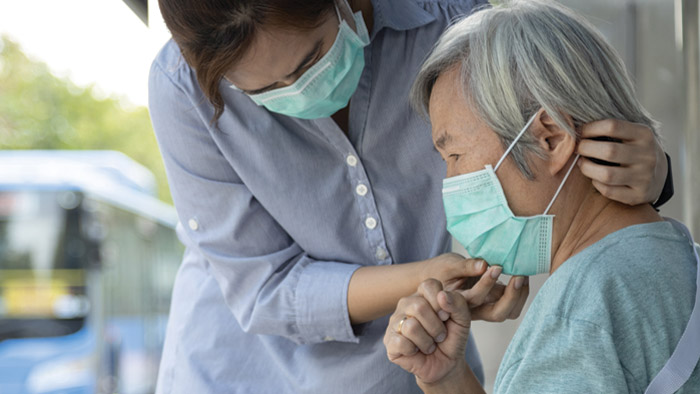
The COVID-19 pandemic threatens the health of millions around the world, but the novel coronavirus presents unique challenges for those living with Alzheimer’s and their family members and friends serving as their caregivers.
“Public health strategies aimed at limiting contact with others are nearly impossible for people living with Alzheimer’s and other dementias who rely on family caregivers and others to live their daily lives,” says Beth Kallmyer, vice president, care and support, Alzheimer’s Association based in the US. “This reality affects these individuals across all settings, including home, adult day services, residential and assisted living facilities and nursing homes.”
To help family caregivers navigate the complex COVID-19 environment, the Alzheimer’s Association based in the US is offering additional guidance to families, including:
• Foster safe hygiene habits. People living with Alzheimer’s and other dementias may forget to wash their hands or follow other precautions to ensure safe hygiene. Caregivers are encouraged to be extra vigilant in helping individuals practice safe hygiene.
• Monitor sudden or sustained behaviour changes. People living with Alzheimer’s and other dementias may not be able to communicate if they are feeling bad or showing early symptoms of illness. Caregivers should monitor family members closely and respond quickly to any signs of distress, discomfort or increased confusion. These signs do not necessarily indicate a serious condition like COVID-19, but it’s important to determine the underlying cause.
• Prepare for potential changes in care and support. As public health containment strategies for COVID-19 escalate, families need to anticipate that less help may be available. It’s important for families to anticipate these changes and make plans for filling gaps in caregiving.
• Be calm and create a nurturing environment. The current COVID-19 pandemic is creating added anxiety for everyone. Do your best to remain calm, particularly in your interactions with family members living with dementia. These individuals often take their cues from the people around them. Creating a calm environment will help them feel safe and protected.
• Play gatekeeper with outside caregivers and guests. Carefully monitor who is coming into the home to ensure all who enter are healthy. Be proactive in asking outside caregivers and guests about their current health status and make sure they are not experiencing any early or recent symptoms of illness.
• Ask residential care facilities about communication policies. To protect the health of residents, many facilities are restricting access to outside visitors. Ask the facility about alternative communication methods during the crisis, including phone calls, video chats or emails. If your family member is unable to engage in calls or video chats, ask the facility how you can connect with staff to get health updates.
Many primary caregivers are not good about asking for help even as care responsibilities escalate. It’s important for family members and friends to be proactive during the current crisis in asking caregivers how they can help.